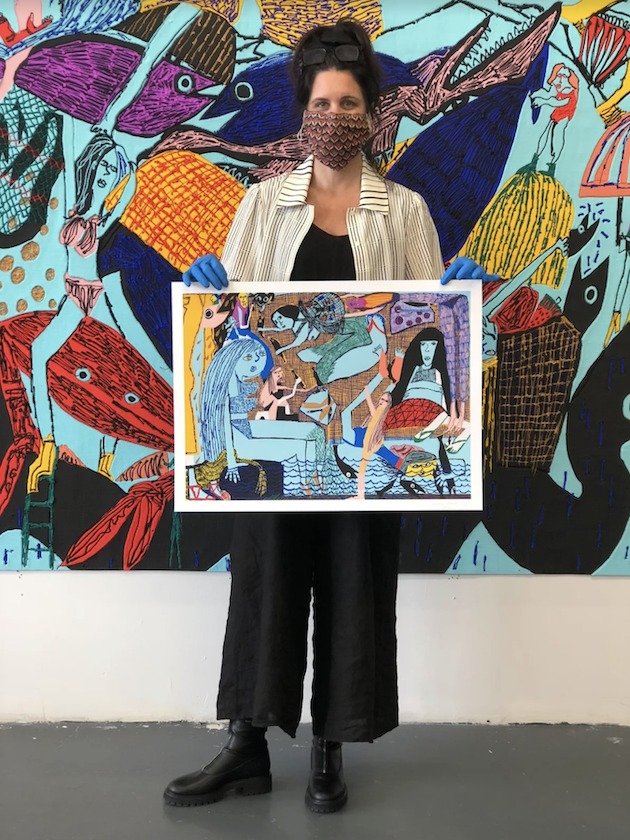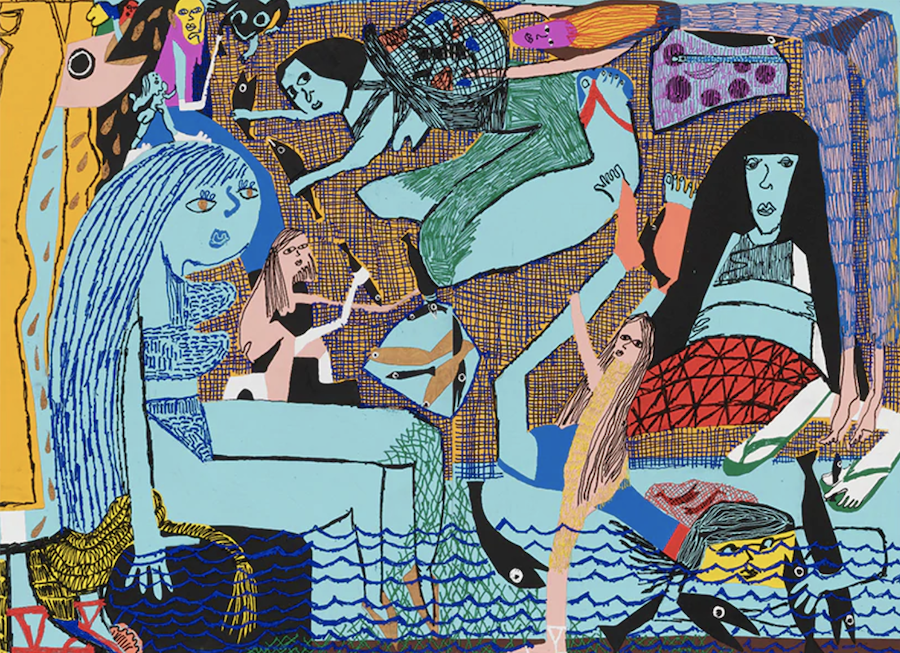Summer Wheat is known for her vibrant paintings, multifaceted sculptures, and immersive installations that weave together the history of materiality, figuration, and abstraction in both fine art and craft milieus. Each series engages individual and collective human experiences drawn from historical and contemporary sources, mediated through a variety of references ranging from ancient art and medieval tapestries, to etchings from the Renaissance or modernist abstractions. Wheat’s work examines various manifestations of labor, leisure, commerce, and class through the depiction of numerous figures and archetypes such as farmers, hunters, beekeepers, gardeners, weavers, bankers, and movie stars. The artist’s densely populated “scapes” envision worlds where time seems to have collapsed and every person, regardless of social status, occupies a shared/equal space, in which both labor and leisure are paths to healing humanity. Using a tongue-in- cheek type of humor inspired by comic strips, Wheat subverts conventional hierarchical structures and stereotypes to create more expansive depictions of daily life throughout history.
Summer Wheat is known for her vibrant paintings, multifaceted sculptures, and immersive installations that weave together the history of materiality, figuration, and abstraction in both fine art and craft milieus. Each series engages individual and collective human experiences drawn from historical and contemporary sources, mediated through a variety of references ranging from ancient art and medieval tapestries, to etchings from the Renaissance or modernist abstractions. Wheat’s work examines various manifestations of labor, leisure, commerce, and class through the depiction of numerous figures and archetypes such as farmers, hunters, beekeepers, gardeners, weavers, bankers, and movie stars. The artist’s densely populated “scapes” envision worlds where time seems to have collapsed and every person, regardless of social status, occupies a shared/equal space, in which both labor and leisure are paths to healing humanity. Using a tongue-in- cheek type of humor inspired by comic strips, Wheat subverts conventional hierarchical structures and stereotypes to create more expansive depictions of daily life throughout history.



